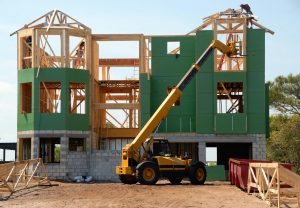 A construction loan from a private lender is short-term financing that covers the cost of building or major renovations. Unlike traditional bank loans, private lenders ( investment funds, individuals, or even hard money lenders,) are more asset-based and flexible, focusing on the project and collateral rather than just borrower credit.
A construction loan from a private lender is short-term financing that covers the cost of building or major renovations. Unlike traditional bank loans, private lenders ( investment funds, individuals, or even hard money lenders,) are more asset-based and flexible, focusing on the project and collateral rather than just borrower credit.
A lot of times, they have better rates than your local bank

Guidelines
Loan Purpose
Ground-up construction (residential, multifamily, or commercial).
Major rehab or redevelopment projects.
Sometimes used by builders, developers, or investors who plan to sell or refinance upon completion.
Loan Terms
Term length: 12–24 months (with possible extensions).
Rates: Prime minus .5 to 1% (lower than banks, and faster approvals).
Points/fees: 1%–4% upfront.
Payments: Interest-only during the loan term.
Loan-to-Value / Loan-to-Cost
Loan-to-Cost (LTC): Usually 70%–85% of project cost.
Loan-to-Value (LTV) (on completed value): Usually 65%–75% of ARV (after repair value or after construction value).
Funding Structure
Loan proceeds are released in draws (not all upfront).
Borrower submits construction budget + timeline.
Funds disbursed after inspections confirm progress.
Down Payment / Equity
Usually requires 20%–30% equity injection.
The borrower must show they have “skin in the game.”

Collateral
Property/land under development is primary collateral.
Some lenders may also require personal guarantees.
Credit & Experience
Credit score less important than in banks, but good credit (620+) helps.
Builder/developer experience is highly valued — private lenders are more cautious with first-time builders.
Exit Strategy
Must show a clear plan:
Sell upon completion.
Or refinance into a permanent mortgage (rental loan, DSCR loan, etc.).



